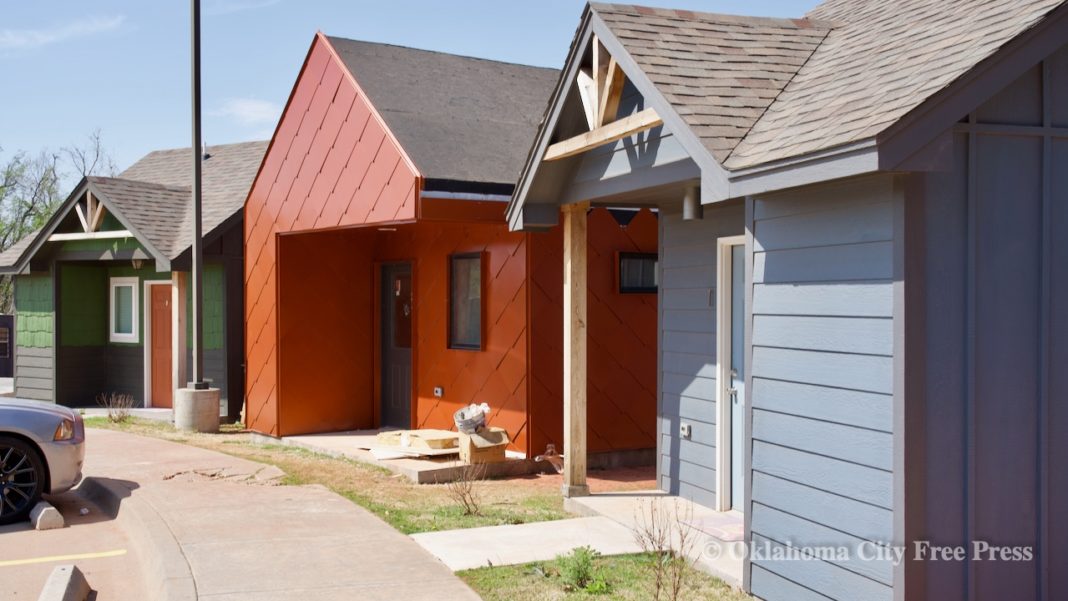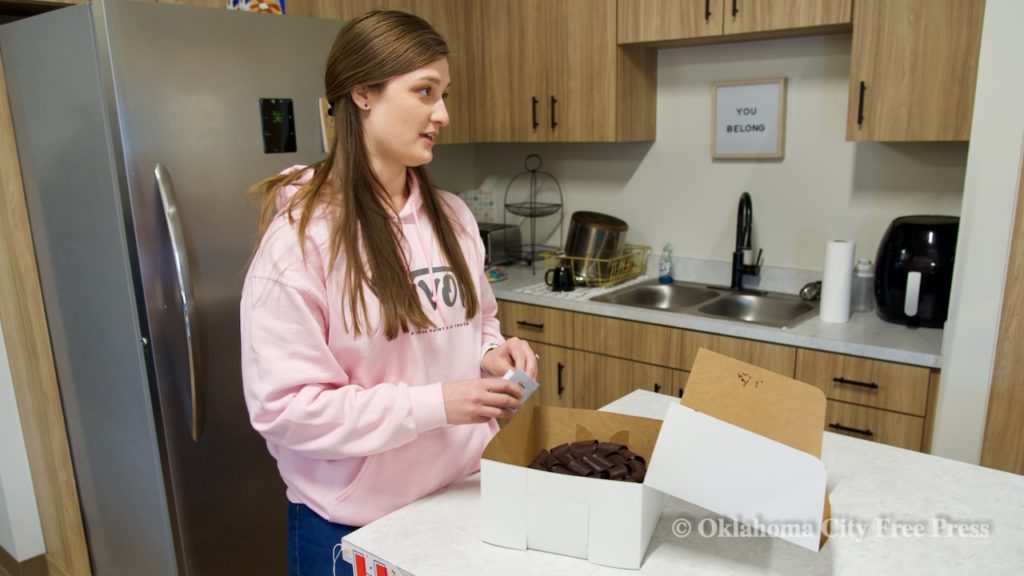Last Updated on July 13, 2022, 12:03 PM | Published: April 3, 2021
OKLAHOMA CITY (Free Press) — Pivot, Inc. is an Oklahoma-City-based service provider offering aid to young people experiencing homelessness in Oklahoma City.
In recent years the organization has been able to add a housing component to its services by building several tiny houses on its campus on NE 50th Street.
History
Free Press spoke via phone to Jennifer Goodrich, President and CEO of Pivot, to get background on the organization, and a glimpse at what’s to come for Pivot and their clientele.
The organization was founded in 1972 as Youth Services for Oklahoma County. In 2018, the organization rebranded as Pivot, Inc., using the slogan “A Turning Point for Youth.”
Pivot serves Transition Aged Youth in Oklahoma City. Many of the young people they serve, all of whom are 24 years old or younger, have been in DHS custody previously, some having aged out of DHS services. They also serve young people who have been involved in the juvenile justice system.
A group of philanthropic organizations approached Pivot and asked to continue some of the programming Be The Change, another youth organization, had been providing before they closed.
Pivot now has a drop in center, the Point, and two shelters on their campus.
One shelter, Family Junction, is specifically for young people aged 12-15 who are currently DHS wards, with a capacity of 16 during non-covid times. They currently are sheltering 12 young people. The other shelter at the Point is for those aged 16-24 with a capacity of 24, with 12 being sheltered currently.
Drop-In Services
In addition to sheltering, the Drop-In center at the Point offers a variety of services. The drop in is open from 4 p.m. to 8 p.m.
Every young person coming through the Point is assessed for their potential service needs. Those may include healthcare, mental health services, substance use treatment, education, and employment.
Pivot’s advocates provide general case management as well as mental health and substance use case management.
Variety Care has partnered with Pivot to open a clinic site at the Point, which is available to Pivot’s clientele as well as neighboring community members.
Housing
Peter Fulmer, Chair of the Board of Trustees for Pivot, spent some time talking to Free Press about the fairly new housing component of services provided by Pivot.
Fulmer, who has a background in Real Estate, says that about 15 years ago Pivot started looking for ways to include a housing piece to their services. They visited Tulsa to see the housing component of Tulsa County Youth Services to learn a little more about housing services for young people.
Years later, the tiny house concept came to the fore, and Fulmer and others involved in the organization started looking into the possibilities of that model. There was unused land on the north side of the Pivot campus, an ideal site for transitional housing since it is literally steps away from services. The neighborhoods around Pivot received the idea of a tiny home community well, according to Fulmer.
Fulmer said that an associate, Richard McKown, who is a local developer, had some experience with the tiny home community in Norman, which was built by his father. McKown offered his help in planning.
Other developers offered their services in helping to properly plat the unused property. There is now space for as many as 86 tiny homes.
Generous donations allowed Pivot to build an initial three tiny homes. Smith & Pickel, a local construction company, are currently building three additional homes. A grant from the Federal government will allow Pivot to build 20 more of the tiny homes.
Fulmer said that there is potential in the future for multi-family units, provided they receive evidence of better outcomes for that type of housing.
Fulmer told us that Pivot has collaborated with other local nonprofits about offering wrap-around services.
“We don’t want to reinvent the wheel.”
Outcomes
The tiny homes are intended to be transitional housing, meaning it’s a safe and long-term place to live while developing skills necessary to manage traditional housing on one’s own.
The housing is for clients aged 16 to 24.
Goodrich said that the housing program is pretty structured. Living in one of the homes requires a daily interaction with an advocate, generally via phone. Once a week, housing clients must have a face to face meeting with their advocate. And once a month each housing client has a mental health assessment.
So far, the first three Pivot housing clients have moved out into more traditional housing situations.
For more information on Pivot, please visit their website at pivotok.org.
Columnist covering local government in Oklahoma City and Oklahoma County from May 2019 through June 2023.













